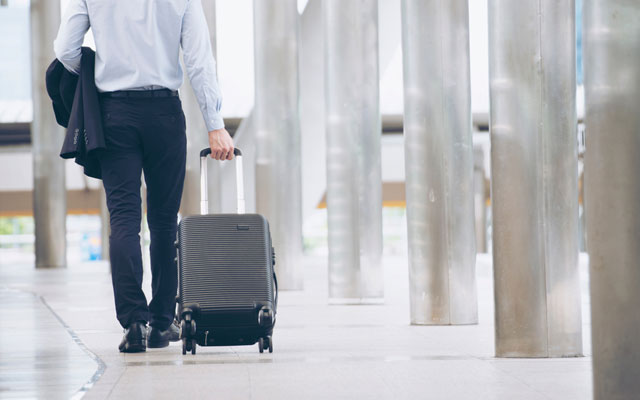While corporate cards offer refund protection for cut tickets cancelled in 2020 due to the Covid-19 pandemic, follow-up “tracing and tracking” is throwing up challenges, according to some regional buyers managing large multi-market, multi-airline programmes.
In recent GBTA online discussion updates, US corporate travel managers (CTMs) raised the issue of unused air tickets being booked for leisure travel by employees who have left the company.

Benson Tang, executive director, corporate travel, Informa Markets, who is based in Hong Kong, said there is no possibility for the scenario at his company.
Tang explained: “Our company issues a corporate credit card and all charges are put on it. And a manager’s card will be used for non-managerial staff without one.
“If a refund is needed, the credit will go back to the corporate credit card. For LCCs, we have a corporate account and bulk purchase travel coupons, so unused tickets go back into our corporate account. So no issue.”
The CTM of a global European retail giant with T&E management handled out of Shanghai, told TTGmice he is trying to close any gaps.
He said: “We use Airplus International in most countries. In China, however, we are still using invoicing due to complex cross-charging needs. Since June last year, we have been working with the TMC in each country to refund all unused tickets.
“We have also heavily restricted new bookings, ensured new bookings are flexible for change, but, there will still be gaps in the follow-up even if the overall sums involved are not significant.
“We have also worked with the TMC to implement pre-trip approval for LCC bookings in December 2020 to close off this gap.”
But some Singapore-based regional CTMs have expressed concern.
One CTM in the pharmaceutical sector pointed out that corporate credit cards have different liabilities – corporate versus personal – and if the latter, she quipped that some employees can leave the company with three years worth of mileage points to use.
She continued: “While there was ‘no travel’ in 2020, we still paid out millions in our air programme and are still looking at a chunk of money to be refunded.
“On a company basis, we do not know who has an open ticket and neither does the TMC know if a ticket in the system has been used or when it was used. That’s because the TMC booking and airline reservations systems can’t talk to one another as GDS, mid- and back-end systems are different in each country.
Studying the TMC reports is like looking for a needle in a haystack, she observed. “We have asked if our TMC can upgrade its system to help track air tickets because our employees don’t know how many bookings they have but are not used and have to be sent for a refund.”
The situation, she said, is further complicated by different airlines adopting different refund policies, some suddenly changing their policies from cash to credit, even asking corporates to make a new booking.
“We never used to have to track unused tickets but because of Covid-19 it is now ‘visible’,” she noted, adding some suppliers took a long time for the refunds.
Sharing similar concerns, a CTM in the energy sector, said he is seeking some US$208,000 in refunds, mostly cash but some vouchers, and noted about US$80,000 is still outstanding.
The company, which has nearly 20 regional and international airlines in its programme, has had to wait around six months for refunds so far.
He commented: “Our TMC is providing a refund report free of charge, and we are willing to pay a US$50 transaction fee for each refund request.
“I totally understand the main intention of the airlines is to stay afloat, but they must also do something to work with each other when capacity is limited, when service is reduced and some airfares have increased substantially.
“My suggestion is for airlines, regardless of their alliance membership, to consider allowing interlining to help corporate travellers and to cut waste. Airlines need to start talking to each other,” he urged.
Shirley Yuen, regional director – global and strategic sales, Asia Oceania sales office, Japan Airlines, commented: “Corporates usually book via a corporate fare. However in cases where corporate fares are not used, then tracking for corporate spending may be difficult.
“Only IATA published fares allow the use of all IATA airlines, but they are usually the highest. Airlines may also file a carrier fare that allows the use of specific carriers in a joint business or in the same alliance. For example, American Airlines is our Pacific joint business partner.”





















